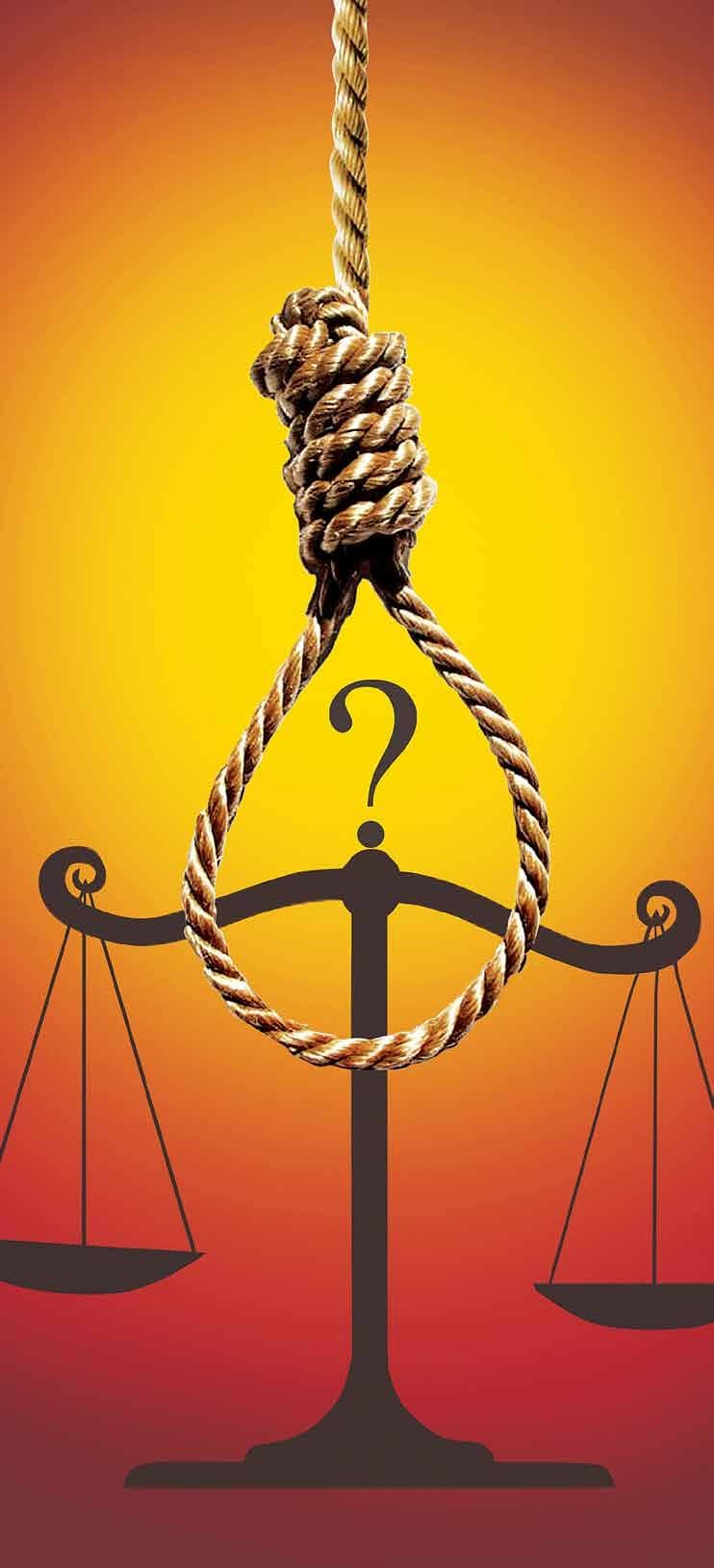
IN 2006, a Supreme Court bench of justices S.B. Sinha and Dalveer Bhandari commuted the death term of Amrit Singh, then 33, who was convicted of rape and murder of a seven-year-old girl three years earlier in a Punjab village. Both the trial court and the high court had held it to be a fit case for death sentence but the top court thought otherwise. “The manner in which the deceased was raped may be brutal, but it could have been a momentary lapse on the part of appellant (convict), seeing a lonely girl at a secluded place,” Justice Sinha had said in the judgment, converting the death sentence to life term.
In 2004, Dhananjoy Chatterjee, 39, was hanged at the Alipore jail in Calcutta for a similar crime— the rape and murder of a minor at her home in 1990. He was a guard of the apartment where the girl lived.“The courts must not only keep in view the rights of the criminal but also the rights of the victim of a crime and society at large while considering the imposition of appropriate punishment,” an SC bench of judges Madan B. Lokur and K.S. Radhakrishnan had said while upholding the death sentence to convict.
The two cases are classic examples of how judges assess the severity of a crime in their own way, often leading to different degrees of punishment for crimes of similar nature. Such drastic variations have been apparent in hun dreds of judgments that the apex court has delivered over a period of time, legal experts say. The argument of “momentary lapse” of reason is often applied to rape and murder cases to lessen the punishment, they add. As a debate rages in the country over the “delay” in hanging four convicts in the 2012 rape and murder of a 22yearold paramedic in Delhi, the spotlight is firmly on the judiciary in view of the flurry of petitions filed by the guilty.
Esta historia es de la edición March 09, 2020 de Outlook.
Comience su prueba gratuita de Magzter GOLD de 7 días para acceder a miles de historias premium seleccionadas y a más de 8500 revistas y periódicos.
Ya eres suscriptor ? Conectar
Esta historia es de la edición March 09, 2020 de Outlook.
Comience su prueba gratuita de Magzter GOLD de 7 días para acceder a miles de historias premium seleccionadas y a más de 8500 revistas y periódicos.
Ya eres suscriptor? Conectar

The Propaganda Files
A recent spate of Hindi films distorts facts and creates imaginary villains. Century-old propaganda cinema has always relied on this tactic

Will Hindutva Survive After 2024?
The idealogy of Hindutva faces a challenge in staying relevant

A Terrific Tragicomedy
Paul Murray's The Bee Sting is a tender and extravagant sketch of apocalypse

Trapped in a Template
In the upcoming election, more than the Congress, the future of the Gandhi family is at stake

IDEOLOGY
Public opinion will never be devoid of ideology: but we shall destroy ourselves without philosophical courage

The Many Kerala Stories
How Kerala responded to the propaganda film The Kerala Story

Movies and a Mirage
Previously portrayed as a peaceful paradise, post-1990s Kashmir in Bollywood has become politicised

Lights, Cinema, Politics
FOR eight months before the 1983 state elections in undivided Andhra Pradesh, a modified green Chevrolet van would travel non-stop, except for the occasional pit stops and food breaks, across the state.

Cut, Copy, Paste
Representation of Muslim characters in Indian cinema has been limited—they are either terrorists or glorified individuals who have no substance other than fixed ideas of patriotism

The Spectre of Eisenstein
Cinema’s real potency to harness the power of enchantment might want to militate against its use as a servile, conformist propaganda vehicle